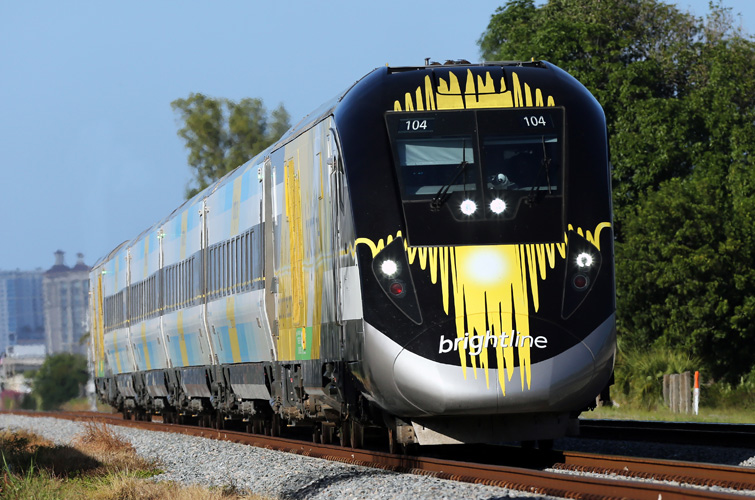
The odds against winning a U.S. Supreme Court victory against the Virgin Trains USA project after a string of defeats were too much for Indian River County commissioners.
Instead of gambling $50,000-to-$75,000 on a longshot appeal to the nation’s highest court, commissioners voted 4-1 last Tuesday to accept their Dec. 20 defeat in federal appeals court.
The court upheld the Federal Railroad Administration’s financial and environmental approvals for the $2.6 billion extension of Virgin Trains’ passenger rail service from West Palm Beach to Orlando.
VTUSA plans to send 34 passenger trains per day through Indian River County by late 2022 at speeds reaching 110 mph. The county commission has opposed the project because it believes the trains will reduce quality of life in the county, cost the county money and create a serious risk to public safety.
Virgin Trains, which operates between Miami and West Palm Beach, killed 31 people since starting service in 2018, FRA records show.
Multiple individuals and at least one organization have objected to the decision, but their opinions are unlikely to have any effect.
Indian River Shores homeowner Peter Seed sent the commissioners an email a few hours after the vote saying he was disappointed in their decision and asking them to reconsider.
Before the vote, Seed urged the commissioners to continue the appeal because the federal case was “the only way to stop the project.”
Russell Herrmann, of the Friends of St. Sebastian River, pleaded with the commissioners on Jan. 14 to continue the court challenge so they can say they did all they could to protect safety and the environment.
Noting the construction of new railroad bridges across the river requires extensive pile driving, Hermann said, “This destruction has the potential to cause irreparable damage to the St. Sebastian River and ultimately affect the Indian River Lagoon.”
Commissioner Tim Zorc, who was the lone holdout on the commission, indicated he wanted to play out the court challenge to the end.
“It’s like we’re in a football game, we’re at the one-yard line,” Zorc said. “Why don’t we try to make it across the line.”
Another die-hard train opponent, Commissioner Bob Solari, said he voted with the majority because he didn’t think the high court would accept the case.
Commissioner Peter O’Bryan said it was hard to envision the high court overruling the Federal Railroad Administration and casting a shadow on $1.75 billion in bonds issued to finance the project.
“I was one who wanted to take the negotiations and settle back in November 2018,” O’Bryan said. “We did fight the good fight, but I’m back to the position where I think we’ve gone down this road as far as we can.”
Indian River County still has a case pending in state Circuit Court in Duval County asking a judge to rule the county doesn’t have to pay for railroad crossing improvements and maintenance for higher-speed passenger rail because that wasn’t contemplated in the crossing agreements signed decades ago with Florida East Coast Railway.
County Attorney Dylan Reingold said he expects the state case to heat up in about a year.
With the federal court challenge over, Indian River County can still hold out hope the Virgin Trains project continues to fall further behind schedule and ultimately collapse, said Commissioner Joe Flescher.
“We were told by (VTUSA Vice President) Rusty Roberts steel will roll through our county at 110 mph no later than 2017,” Flescher said. “Check your watches. That was stated in about 2012. It is now 2020.”
Ensuring Virgin Trains installs the necessary safety measures along the tracks and at railroad crossings in Indian River County could cost the company more time and money, Flescher said.
Additional safety costs could be added statewide if the Legislature passes state Sen. Debbie Mayfield’s High-Speed Passenger Rail Safety legislation.
“It might be an unreachable goal for them,” Flescher said. “Perhaps the death train is still derailed.”



